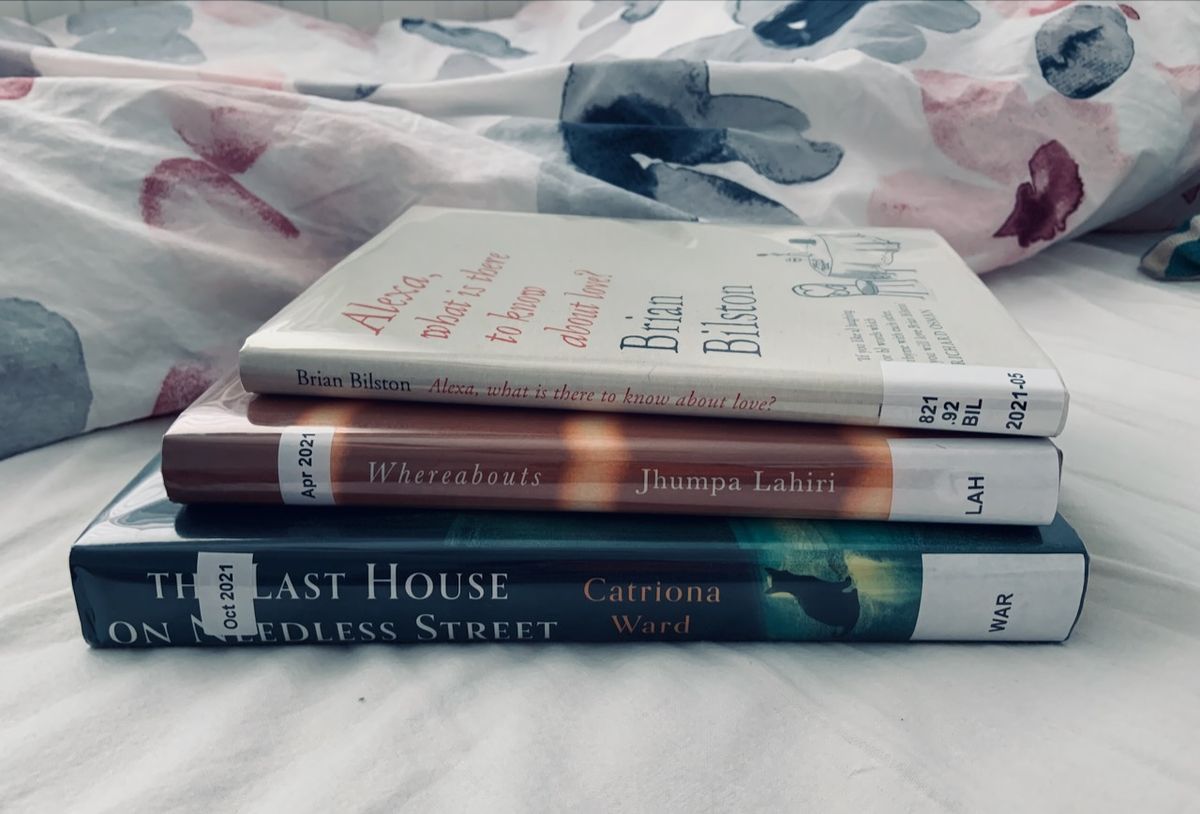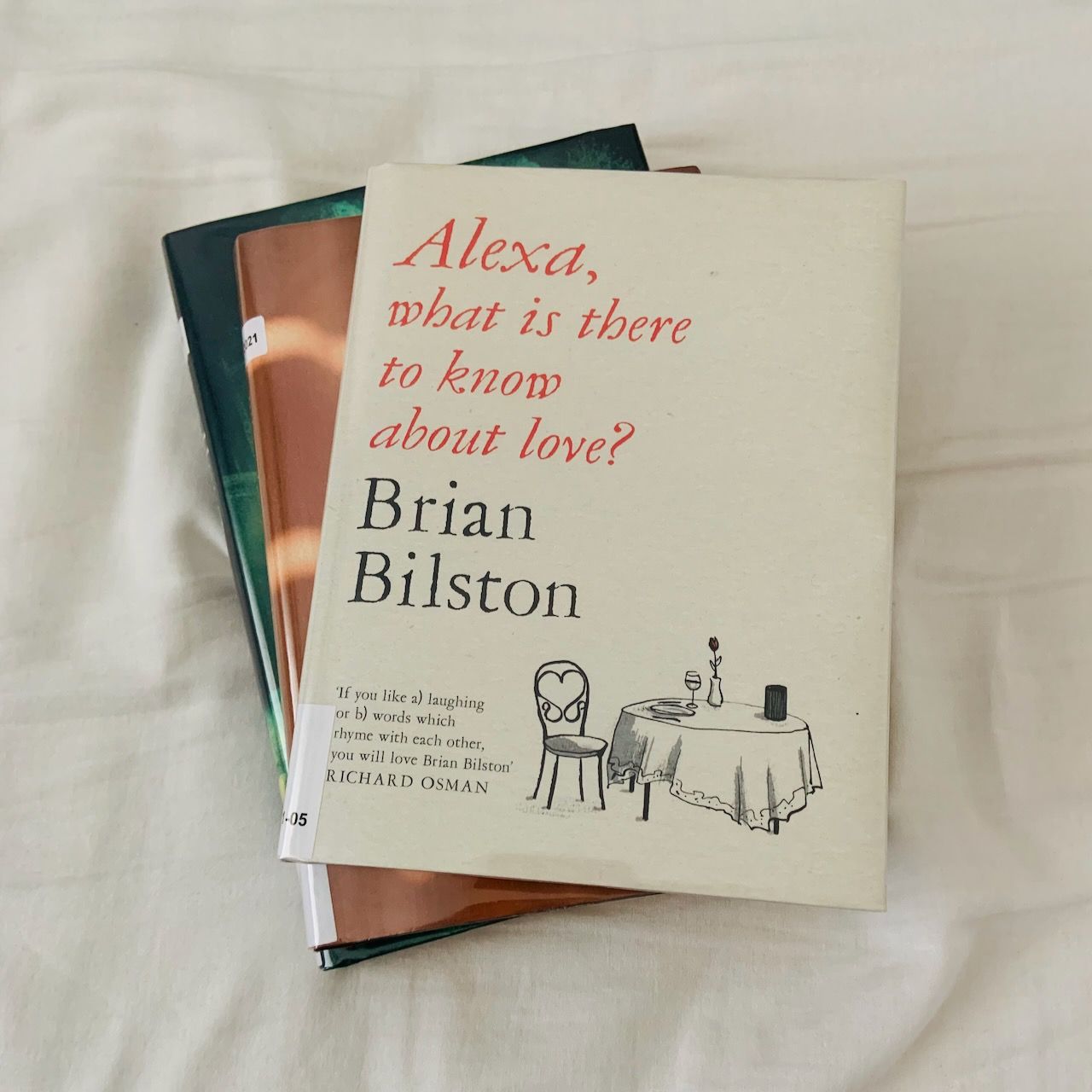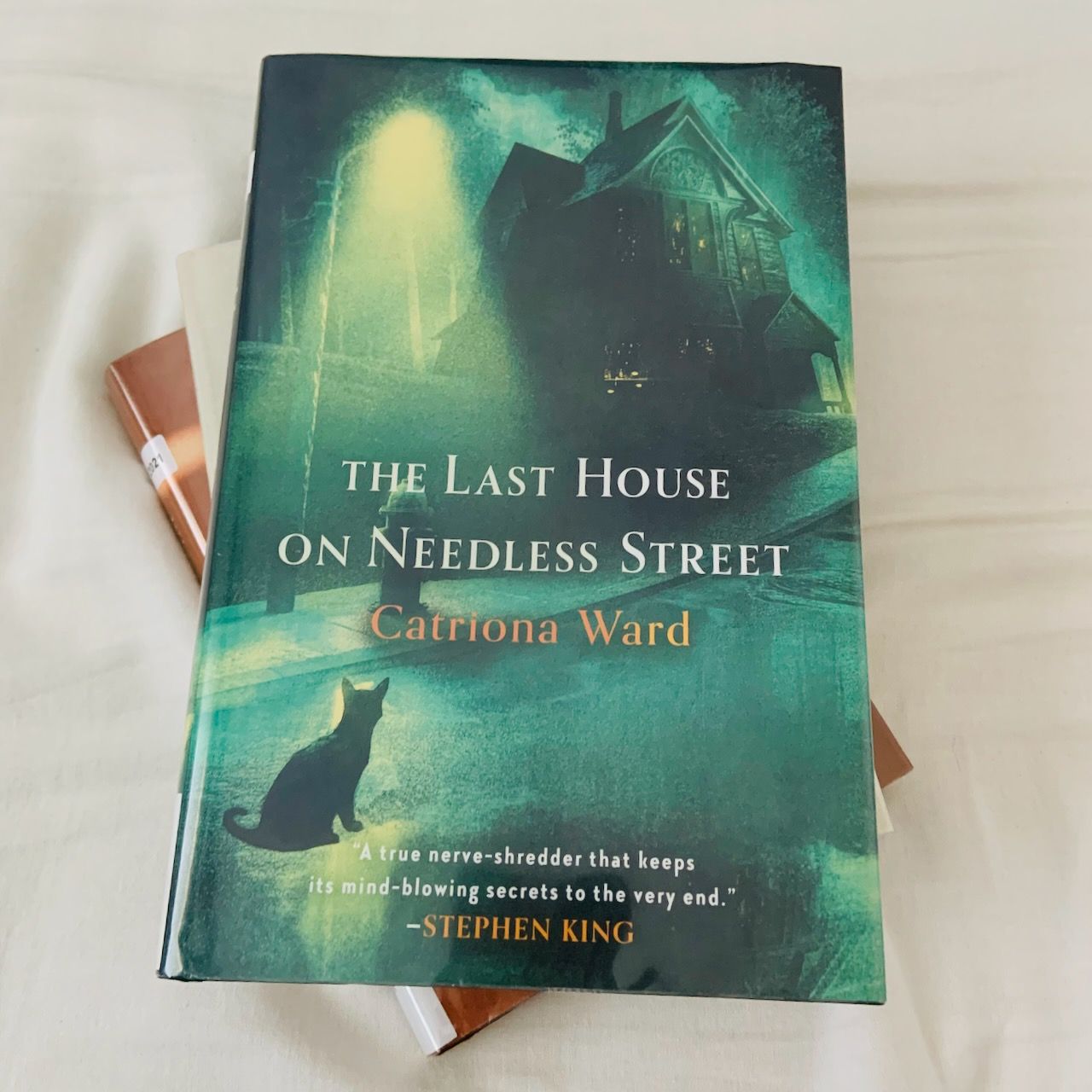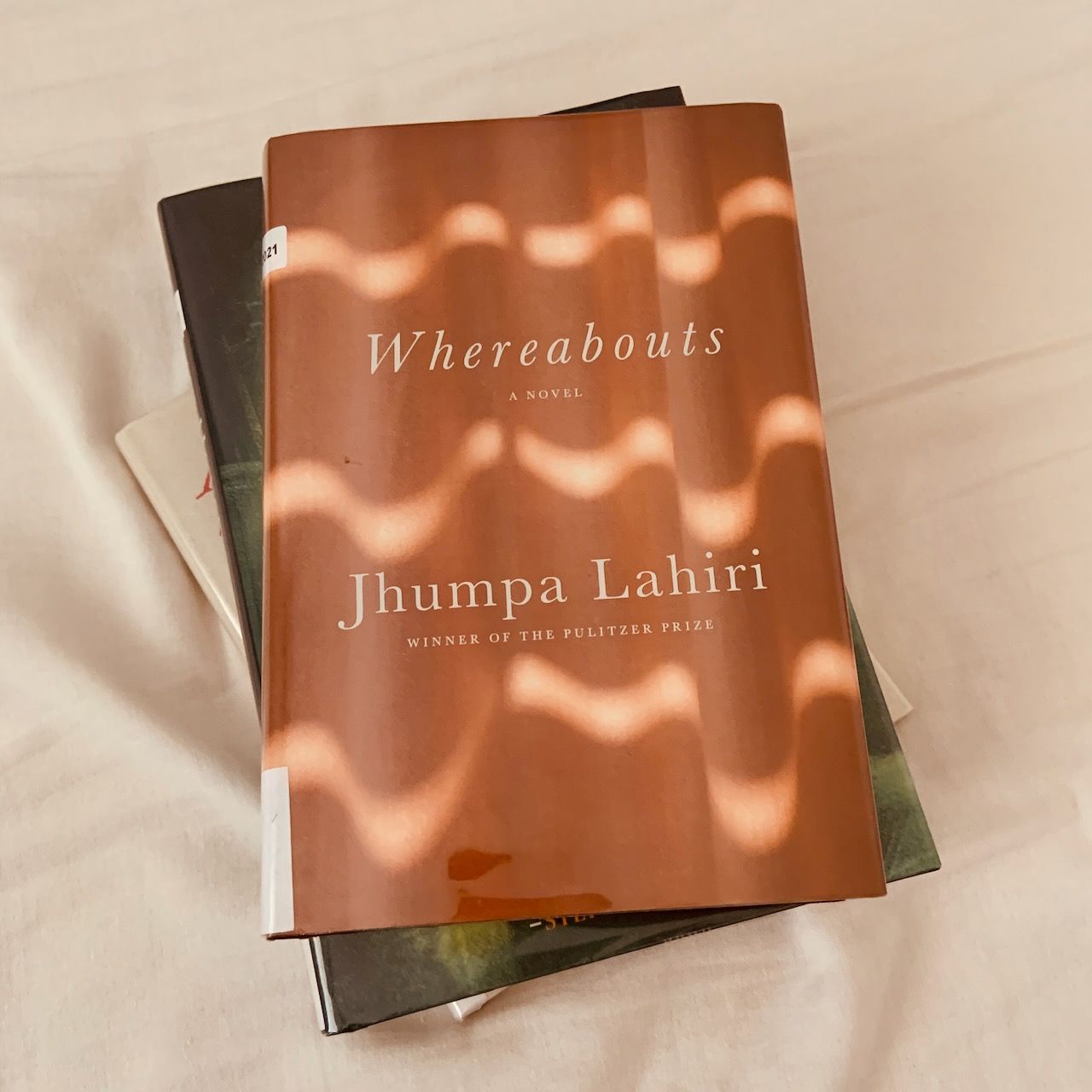books you may love: humour, horror, hiraeth
Three titles. Three genres. Countless ways to enjoy them.

I meandered through a lot of books this past month. Little on the reading and writing front seemed to hold my interest.
Perhaps it was the weather, the blossoming of spring outside that beckoned to me loud and clear in the form of birdsong and golden sunlight. Or perhaps it was the multitude of social invitations that surprisingly came our way, and we found ourselves on weekends suddenly busy with playdates and visits or outings or even planning for these events.
But the urge to reach for a book was always there whenever I fell into a moment of quietude.
We often believe that a good book is all we need, but our own state of mind influences our reading experiences all the time. It's something we don't quite acknowledge because we're mostly not aware of it in the first place.
So even though I was thumbing through titles, my restless mind couldn't quite settle upon anything to read.
It was like going on a treasure hunt. I picked up several books only to abandon them a few chapters in. And then I stumbled upon three delightful reads. Each one gripped me in surprising and startlingly new ways! And they were as different as could be from each other and from anything I had read so far.



Alexa, what is there to know about love? by Brian Bilston
A book of humorous poems
Poetry and humour. Now that's a rare combination to me. I first came across Brian Bilston's poem, You Took the Last Bus Home. I didn't understand it at first. It took me a few readings for the penny to drop and when that happened, I couldn't help but marvel at the utterly strange and hilarious oddity that a combination of words in the English language can concoct.
I looked up some more of Bilston's work and secured a copy of his latest collection, Alexa, what is there to know about love?
It is filled with rhymes on love and its vagaries and the various facets of love – wooing, dating, forgetting anniversaries, love in the time of the caveman – many outrageously hilarious, some unexpectedly poignant. It was with a smile on my face and a lightness in my heart that I finished reading the collection.
The title poem remains my favourite because our own Alexa has proved to be a constant source of entertainment, what with little D asking her questions the grownups at home would never think to ask and coaxing out unexpected and often hilarious responses from Alexa.
D: Alexa, what is 1 plus 1?
Alexa: 1 plus 1 is 2. But you already knew that, didn't you?
***
D: Alexa, I love you.
Alexa (singing with background music): Thanks for saying I love you, you're just as sweet as pie, know that I'll be here for you, as always, your trusty AI.
***
Here is Bilston's poem on the joys and exasperations of interacting with Alexa.
Alexa, what is there to know about love? by Brian Bilston
Alexa, what is there to know about love?
What is there to know about love?
A glove is a garment that covers the hand
for protection from the cold or dirt and –
Alexa, how does a human heart work?
How does a human heart work?
Blood is first received in the right atrium via
two veins, the vena cava superior and inferior –
Alexa, where do we go to when we die?
Where do we go to when we die?
Activating Google Maps. Completed activation.
Would you like to start from your current location?
Alexa, what does it mean to be alone?
What does it mean to be alone?
It is the silence left by words unsaid,
the cold expanse of half a bed.
It is the endless stretching of the hours,
the needless tending of plastic flowers.
It is an echo unanswered in a cave,
the fateful ping of the microwave.
It is the fraying of a worn shirt cuff,
and the howl – Stop, Alexa. That’s enough.
The Last House on Needless Street by Catriona Ward
A deeply unsettling but eventually satisfying read
I must have placed a hold request for this book with our local library ages ago and forgotten all about it until I received a notification stating that the book was available for me to borrow. And so I did.
I had no idea what to expect, and I decided to go with Stephen King's assertion that the novel is "a true nerve-shredder that keeps its mind-blowing secrets to the very end."
And while that's true, or perhaps because of that, it is hard to explain what the book is about without giving away its secrets.
It begins with a man named Ted Bannerman, his cat named Olivia, and his daughter named Lauren who stays with him occasionally, on the eleventh anniversary of the disappearance of Little Girl with Popsicle, his moniker for Laura Walters. Bannerman was accused back then of being involved in Laura's disappearance. Little Girl with Popsicle's sister has learnt about Bannerman after all these years, and she takes up residence in a ramshackle place down his street to keep an eye on him and rescue her sister.
I try not to read stories in which children disappear or are harmed in any way. It stokes my maternal anxiety, which seems on most days ready to erupt like a volcano and I expend a lot of emotional and mental energy just trying to keep the lid on it.
I began reading the book with trepidation, drawn in by Ward's haunting words and imagery. Chapters are written from multiple points of view, with even the cat, Olivia, having much to say about her life situation.
I am trying really hard and utterly failing at explaining what an ingenious book it turned out to be. Throughout the story, there is a deep sense of foreboding but at the same time, Ward reveals very little of what is actually transpiring. Although the book has been labelled as a horror novel, there are no ghosts or monsters shrieking at you in the dead of the night.
When the first big reveal came towards the end, I'll admit I was quite disappointed, for it seemed to be a very easy way to explain everything that had transpired until then. But then Ward lets out more and more surprises, which made me sit up and take more notice, and at the end of it all, I found myself sympathizing with Bannerman.
It's the kind of book that merits a second read because so many things make sense after you know what's really been going on with Bannerman. And, in fact, it is even more spine-tingling and bone-chilling the second time around.
Whereabouts by Jhumpa Lahiri
A book that reads like a chat with a friend over steaming mugs of coffee
I am pretty terrible at describing books, although I can tell you how a book made me feel. So let me begin with that. Reading the chapters of Jhumpa Lahiri's Whereabouts made me feel as if I were sitting at an idyllic café with a friend, sipping a latte, while she told me about her day, weaving all that transpired with remembrances and hope, memories and longings.
The protagonist is a single woman in her forties, who gives us glimpses of her very quotidian life. She goes in to work, purchases groceries, meets friends, reads books, travels occasionally for work, visits her aging mother. Nothing extraordinary from the looks of it, but in Lahiri's words even the ordinary shines with a special kind of glow.
Each chapter is short and can be read on its own, just as you could meet up with a friend over coffee without any preamble or afterword. But the more such conversations you share, the more you learn about her life.
Apparently, Lahiri first wrote the book in Italian and then translated it into English. Lahiri has even titled her chapters based on everyday locations such as On the sidewalk, On the street, In the office, In the pool, In my head, In August, and so on, which grounded me, gave me a sense of location, and pulled me deeper into her narration.
I remember reading Lahiri's Interpreter of Maladies back in the day, too many years ago, and marvelling at her observations and simple descriptions of everyday objects and happenings. Isn't that what good fiction is supposed to do? Make us see things and people and events in ways we'd have never considered before?
Whereabouts also made me realize that I no longer find pleasure in tales of great heroism and daredevilry, of world rescue and adventure. But simple stories about the everyday lives of ordinary beings have the power to touch me deeply.
Here is an excerpt from the last but one chapter. Actually, it is the chapter in its entirety.
Nowhere
Because when all is said and done the setting doesn't matter: the space, the walls, the light. It makes no difference whether I'm under a clear blue sky or caught in the rain or swimming in the transparent sea in summer. I could be riding a train or traveling by a car or flying in a plane, among the clouds that drift and spread on all sides like a mass of jellyfish in the air. I've never stayed still, I've always been moving, that's all I've ever been doing. Always waiting either to get somewhere or to come back. Or to escape. I keep packing and unpacking the small suitcase at my feet. I hold my purse in my lap, it's got some money and a book to read. Is there any place we're not moving through? Disoriented, lost, at sea, at odds, astray, adrift, bewildered, confused, uprooted, turned around. I'm related to these related terms. These words are my abode, my old foothold.
~ An excerpt from Whereabouts by Jhumpa Lahiri
I am holding off reading the last chapter of Whereabouts for a few more days because I don't want the book to end, I don't want these conversations with this imaginary friend of mine to conclude. I want her to keep confiding in me her deepest thoughts and her feelings, her longings and worries. When I turn the last page, I will miss her for a long, long time.
So tell me now, dear dreamer, what have you been reading?